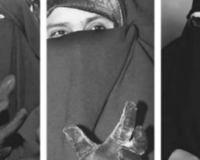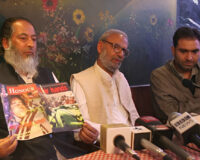India’s recent decision to host a G20 meeting in the disputed territory of Jammu and Kashmir has sparked controversy and raised concerns among the international community. This move by the Narendra Modi-led central government is seen by many as a disregard for international law and United Nations resolutions regarding the Kashmir conflict. Critics argue that the decision is an attempt to construct a false narrative of normalcy in the region and legitimize India’s control over the occupied territory. The decision to hold the G20 meeting in Kashmir is seen as a violation of international law and the United Nations’ resolutions on the Kashmir issue. These resolutions recognize Kashmir as a disputed territory and call for a resolution through a plebiscite to determine its future status. By hosting a major international event in the region, India is perceived to be disregarding these resolutions and asserting its de facto control over the occupied territory.
India’s de facto administration in Jammu and Kashmir has been accused of manipulating information to downplay human rights abuses perpetrated by its occupying forces and present a distorted picture of the situation on the ground. Critics argue that the government’s efforts to renovate Srinagar, the summer capital, ahead of the G20 meeting, are aimed at misleading international delegations and whitewashing the excesses committed against the people of Kashmir. The alleged beautification campaign or fancying of bunkers – the signs of military occupation is seen as a concealment tactic to present a false image and discredit the local population’s resistance. By hosting the G20 meeting in the region, India is attempting to present an image of stability and development, thereby erasing the disputed nature of the occupied region and undermining the efforts of the Kashmiri people to assert their rights.
The decision to deploy additional “special forces” with anti-drone technology in one of the most militarized zones in the world has also raised concerns. Critics argue that this move further exacerbates the heavy military presence in Kashmir and adds to the atmosphere of intimidation and surveillance. The deployment of such excessive security measures for the G20 meeting is seen as an attempt to ensure an unruffled event, but it also raises questions about the priorities of the Indian state and its commitment to resolving the Kashmir conflict.
Information Black Hole
The region has become an information black hole due to government-imposed restrictions on media and communication. The military administration has taken measures to clamp down on freedom of expression and communication in the region to conduct the G20 meeting without any disruption. One of the most significant restrictions imposed in the region is the internet shutdown. Since 2019, the Indian government has imposed numerous internet shutdowns in the region, severely limiting access to information and communication. According to the Software Freedom Law Centre (SFLC), there were 109 internet shutdowns in Jammu and Kashmir in 2020 alone, making it one of the most heavily restricted regions in the world in terms of internet access.
The occupational authorities have also placed restrictions on traditional media, including the imposition of curfews, restrictions on the movement of journalists, and the detention of journalists who report on the situation in the region. In addition, the government has imposed a stringent regime of censorship and surveillance, with authorities monitoring social media and blocking websites deemed to be critical of military India’s policies in the UN-recognized disputed territory.
The blackout of information has had a significant impact on the lives of people in the region, particularly on their access to healthcare, education, and other essential services. The lack of access to information has also affected the ability of journalists, researchers, and human rights organizations to report on the ground, which has limited the global community’s understanding of the situation in the region.
The proposed hosting of a G20 meeting in Jammu and Kashmir has raised concerns about the further restrictions on information and communication that are being imposed in the region. Hosting a high-profile event in a region with limited communication and internet access is accompanied by more stringent controls and restrictions, further limiting access to information and infringing on the freedom of expression of the people in the occupied territory.
Mass Arrests
The Indian government has a history of clamping down on voices of dissent in the occupied region, and the authorities are taking stringent measures to ensure that no protests or demonstrations disrupt the G20 meeting. One of the ways in which the authorities are doing this is through mass arrests of individuals who are seen as a threat to the event. People across the region are being arrested under Public Safety Act (PSA), an act termed by Amnesty International as a “lawless law” under which any individual is put behind bars for two years without any trial. According to a report by the Jammu and Kashmir Coalition of Civil Society (JKCCS), over 14,000 people have been detained under the PSA since 1990, and the use of the act has increased since the revocation of the region’s special status in 2019.
In addition to the PSA, authorities in Jammu and Kashmir are also using other laws, such as the Unlawful Activities (Prevention) Act (UAPA) to arrest individuals who are perceived as a threat to national security. The UAPA allows authorities to declare individuals as terrorists and detain them without trial. The mass arrest of individuals is likely to have an unsettling effect on freedom of expression and dissent in the region, and it may lead to a further erosion of civil liberties.
NIA Raids
India’s infamous National Investigating Agency (NIA) is conducting raids across every nook and corner of the occupied territory to arrest people under fabricated charges and threatening them to create an atmosphere of fear in the region. Even while drafting this report, the infamous agency’s raids and seizure of residential houses are underway in multiple parts of occupied Jammu and Kashmir. Over 4500 people from across the occupied territory have been arrested so far and the arrest spree continues unabated. There are reports of the Indian military conducting night raids across the occupied land. All this is being done in the name of conducting an international event in the region.
In light of these issues, the hosting of the G20 meeting in Jammu and Kashmir not only serves to legitimize India’s illegal control over the occupied region but also exacerbates restrictions on information and communication, mass arrests, and human rights violations. The international community should be vigilant and hold India accountable for its actions, urging India’s de facto government to respect international law and work towards a peaceful resolution of the dispute in Jammu and Kashmir.






